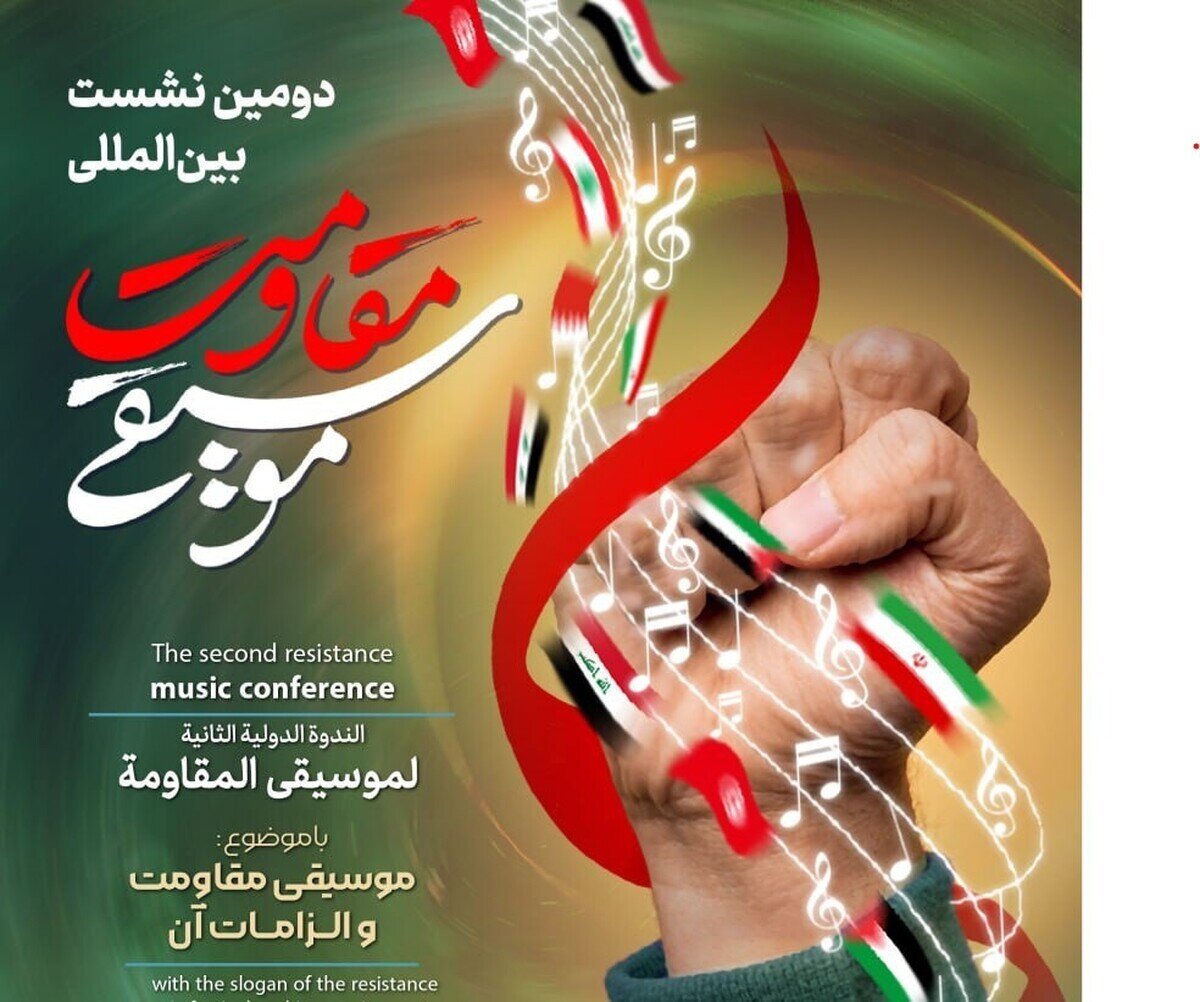Intl. resistance music conference proposes joint orchestra formation

TEHRAN- The second edition of an international conference focused on exploring the realm of resistance music concluded with a proposal to establish a common orchestra among artists from countries in the axis of resistance.
The conference was held at Tehran University on Saturday, with the presence of several professors, researchers, and musicians from both domestic and foreign countries in the Islamic and North African resistance axis, Mehr reported on Sunday.
During the meeting, Iranian musician Shahrouz Haqqi presented a proposal, suggesting the formation of an orchestra consisting of artists from countries within the resistance bloc.
Haqqi emphasized that orchestras can collaborate online and remotely, highlighting the importance of initiating this process from within Iran itself.
For his part, Mahmoud Vaezi, the head of the Faculty of Theology and Islamic Studies at the University of Tehran, emphasized the significance of critical thinking in today's world and academic environments.
He stressed the importance of approaching work with a critical mindset and highlighted the critical discourse that is essential for combating dangers. Vaezi underscored the crucial role of music in promoting the global concept of resistance, noting that resistance music holds significant value for individuals and nations alike.
"For the advancement of the principle of resistance worldwide, music plays an indispensable role and it is through music that we can immortalize the sacrifices made by our martyrs for the cause of Islam," he concluded.
Mustafa Youssef al-Ladawi, a Palestinian guest at the session, highlighted the enduring support of the Persian people for Palestine over centuries, amidst Western exploitation of music platforms for personal gains. He emphasized the role of music in showcasing resistance to the world and stressed the need for closer attention to this aspect.
Following him, Ahmad Hamadani, a Lebanese university professor, composer, and singer, discussed the multifaceted influence of music on social aspects, noting how musical instruments evolve in response to societal events.
Reflecting on the pivotal role of music in the Islamic revolution, Hamadani emphasized the importance of focusing on music of resistance. He underscored the significance of Jihad songs as crucial works during times of conflict, highlighting their historical impact. Emphasizing collaboration and purposeful artistic creation, Hamadani called for a systematic and scientific approach to the discourse of folklore music, urging political officials to provide greater support to artists for achieving desired outcomes through media efforts.
Tunisian composer and singer, Abbas Al-Moukaddem, echoed the sentiment, emphasizing the need for heightened attention to music in the realm of resistance. He advocated for cross-cultural exchange through the utilization of poetry from different countries for creating songs, promoting a profound cultural connection between nations. Al-Moukaddem pledged to produce fitting songs and music inspired by these poems to foster cultural understanding and unity.
Organized by the Center for Deep Strategic Studies, the Faculty of Theology of Tehran University, and the International Institute of Cultural Convergence, the conference was a platform for extensive discussions on the resistance music.
Representatives of musicians from nations across the Islamic resistance region, encompassing North Africa, Lebanon, Syria, Bahrain, Palestine, Yemen, Iraq, and various others, participated at the event.
The forthcoming third edition of the conference is slated for March 6, with the participation of experts from the Middle East, Afghanistan, Pakistan, and China. The fourth session of this distinguished international event will equally unfold on the aforementioned day, welcoming musicians from the captivating realms of Europe and America.
Resistance music is a genre of music that has been used as a tool for defiance, protest, and activism. It has been an important form of expression for marginalized and oppressed communities throughout history, providing a platform for voices that are otherwise silenced.
Resistance music can take many forms. It often carries a message of social justice, equality, and empowerment, seeking to inspire change and challenge the status quo.
Resistance music has the power to unite people and create a sense of solidarity among those who are fighting for change. It can be a source of strength and inspiration for activists and those who are struggling against oppression, providing a soundtrack for resistance movements around the world.
SAB/
